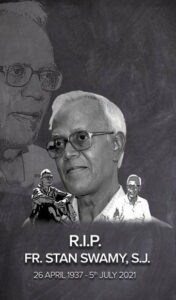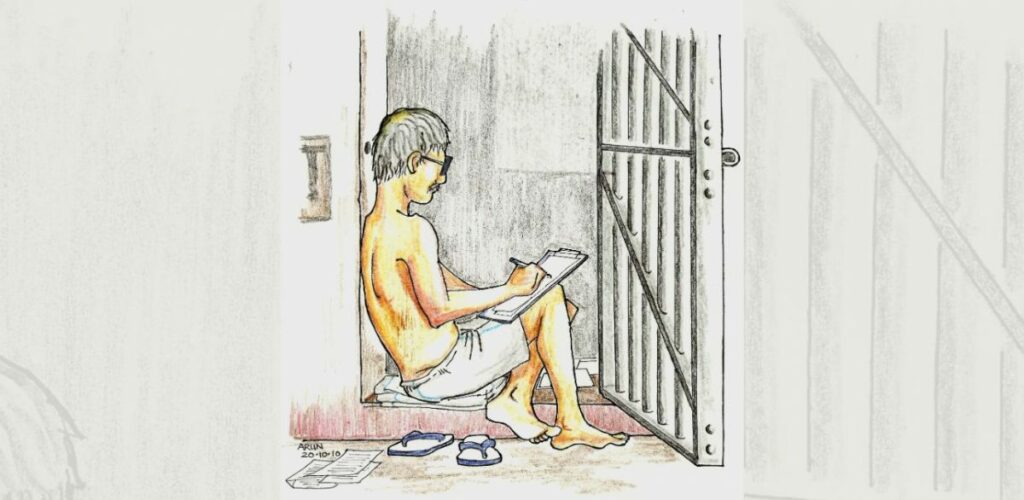I saw firsthand how callous prison officials and their negligence led to Stan Swamy’s death
Scroll.in / by Arun Ferreira
The deterioration of the 84-year-old in Taloja Jail was evident. Jail medical staff watched it happen, recalls a fellow prisoner.
Ferreira was incarcerated along with Swamy in the prison hospital. He has been now released on bail on conditions, one of which disallows him from commenting about the case in the media.
“This is not a natural death, but the institutional murder of a gentle soul,” reads the statement by the family members of the people accused in the Elgar Parishad case that was released immediately after Father Stan Swamy’s death on July 5, 2021.
Some may consider these words a bit too harsh given Stan’s age (he was 84) and health (he had Parkison’s disease). However observing and experiencing the callous treatment meted out to Stan at Taloja Prison, I am inclined to endorse their view.
Read more









